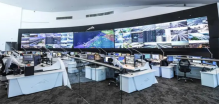NAUTO specializes in developing software for self-driving vehicles - and it announced earlier this week that it had closed a $159m Series B funding round which was led by Japanese conglomerate SoftBank and venture capital firm Greylock Partners. General Motors are not the first prominent global car manufacturers to invest in NAUTO. Other automakers include BMW AG and Toyota Motor Corp.
CEO, and founder of NAUTO, Stefan Heck says its primary objective is to provide car manufacturers with the data and intelligence in order to help automakers deploy self-driving vehicles on the road from 2020. Heck said: "Any (vehicle) manufacturer is better than any startup at building cars. Our aim is to provide the data, intelligence and a cloud platform to automakers that plan to begin putting self-driving cars on the road from 2020."
The investment made by General Motors has not been disclosed, although the Detroit-based car manufacturing colossus bought Cruise Automation in 2016 for more than $500m. Heck chose to decline on the specific post-funding valuation of his firm, suggesting that it was shy of $1 billion, although he did concede that the company was ‘getting there’.
In order to develop its technology the Palo Alto start-up is retrofitting windshields of commercial trucks from North America to Europe and Japan with dual cameras. One camera will be fitted facing the road, whilst the other will face the driver. The objective of this is to accumulate data on driver distraction and on external factors such as the environment around the vehicle and the speed development of the self-driving technology.
Other techniques such as computer vision and deep learning, which is a form of AI, will also be deployed in order to improve driver performance and enhance road safety. According to Heck, learning more about driver behavior is critical because self-driving will have to share the roads with those vehicles for at least the next 20-30 years.
"During that transition period, we need autonomous vehicles that are not just smart, but are able to collaborate with humans," Heck said in an interview.
Nauto is working with investors and other companies "to learn from human drivers, the best and the worst, to inform" the development of self-driving vehicles. Heck declined to say how many vehicles are using Nauto's cameras and software, but said the company expects to accumulate more than one billion miles of real-world data within the next year.


















